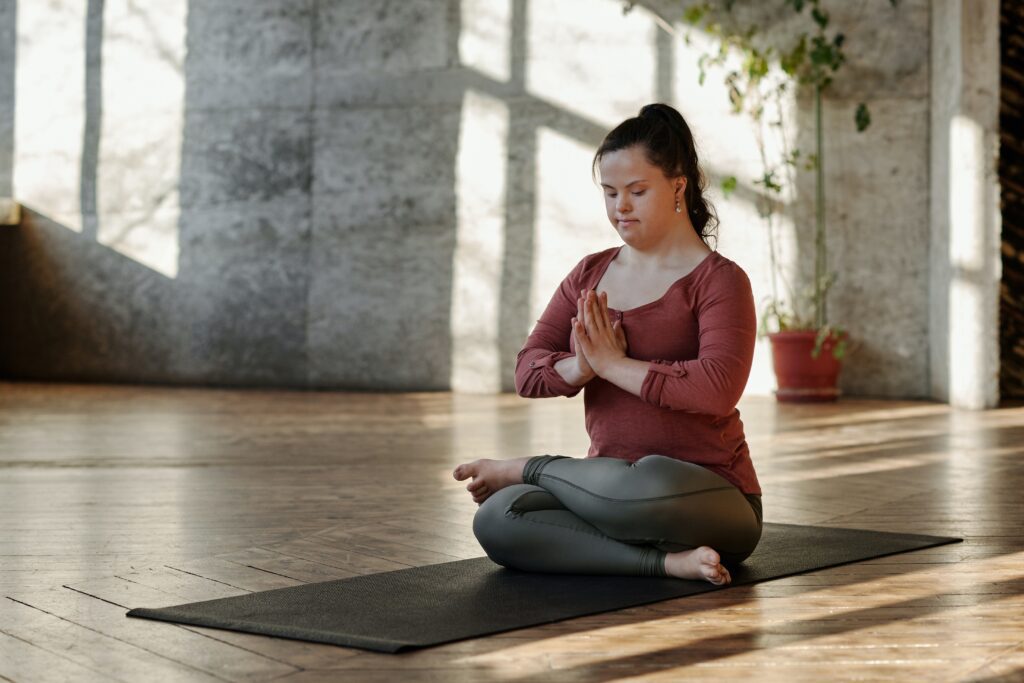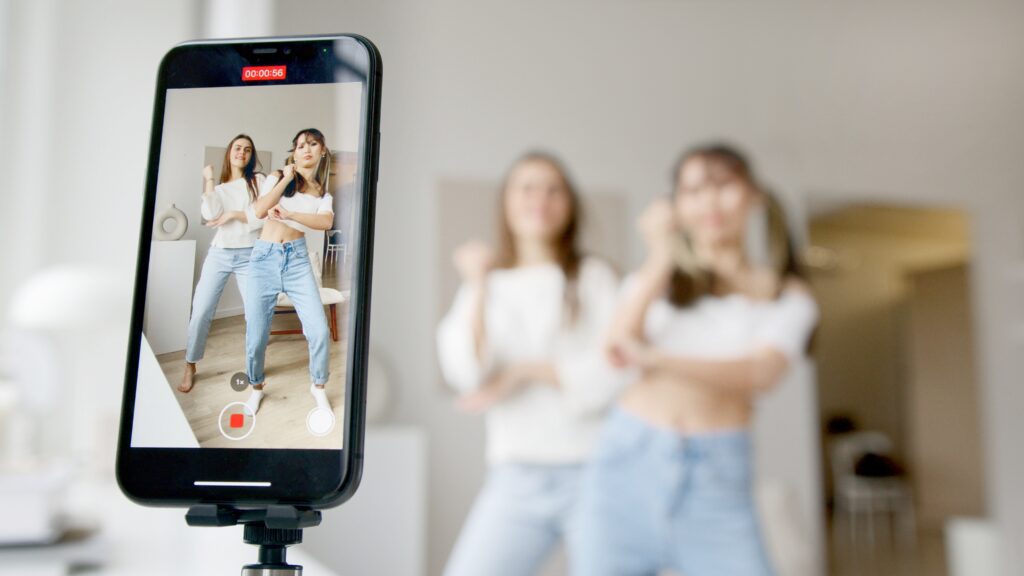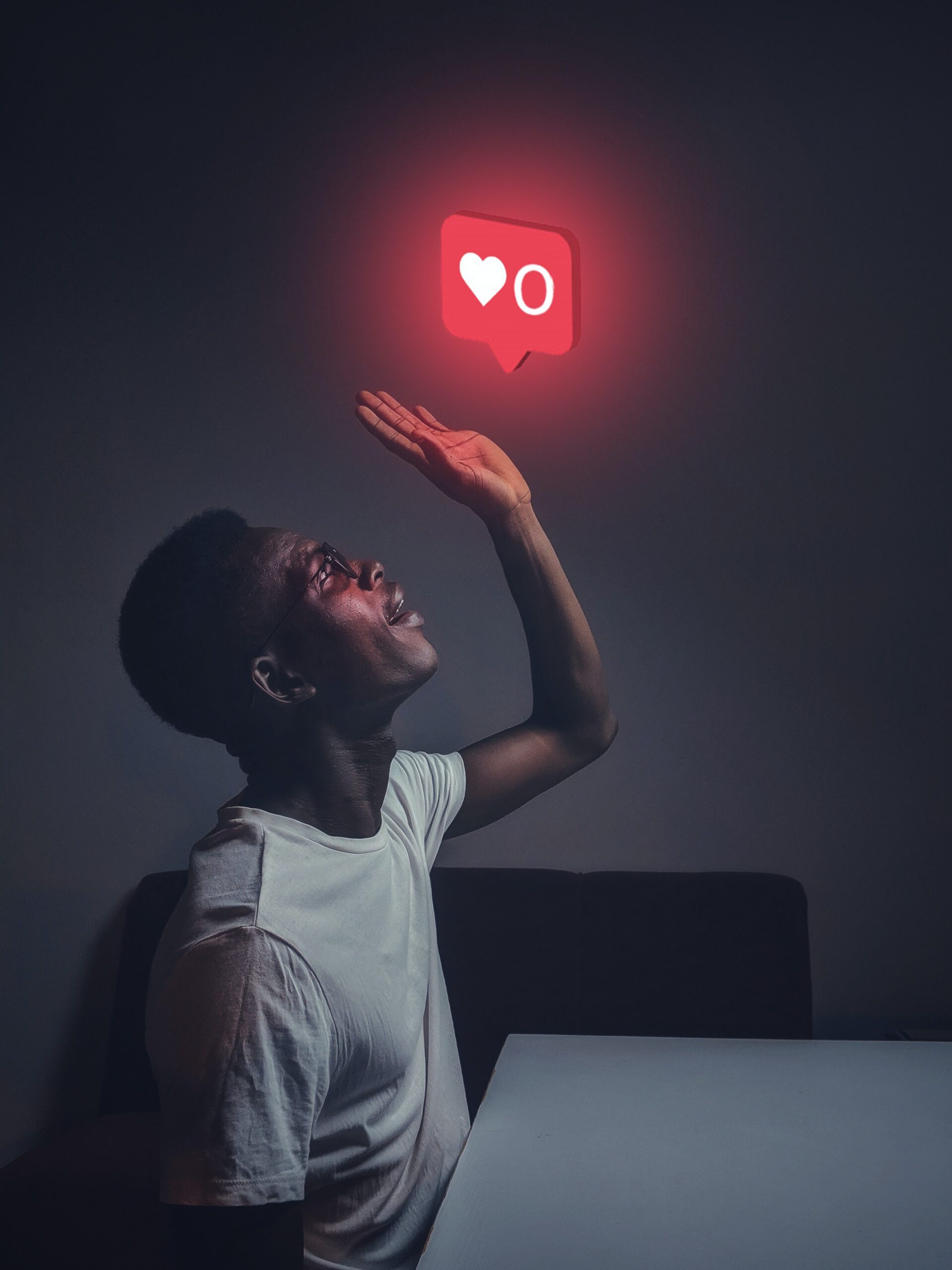Nowadays, Social Media is one of the main entertainment and communication platforms, especially for under-30-year-olds who use it daily, either for checking the news, catching up with friends, or seeking inspiration or even distraction. However, several research studies and surveys have shown that there is a strong correlation between time spent on Social Media and a negative body perception of the user, i.e. the former often negatively impacts the latter.
The content which is mainly under scrutiny in such research is the so-called “fitspo” and “thinspo” pictures.
They are meant to inspire followers to adopt a more fit and healthy lifestyle by showing thin and athletic bodies.
While this seems well-intended, the execution is often flawed as the posts are often altered through Photoshop or other photo-editing applications and therefore present unrealistic and overidealized “fit” body shapes. These posts are not a problem in general, but they quickly become one as we tend to continuously compare ourselves to said body types. A study conducted by FHE (Florida House Experience) Health has shown that 87% of women and 65% of men compared themselves to others, while 50% and 37% respectively did so unfavourably.

However, this issue does not seem to be specifically related to Social Media, as already before its existence people were still surrounded by perfected images of celebrities and models on other mediums such as magazines or TVs. The main difference lies in the general perception of traditional compared to Social Media. While for the former most people are aware that the pictures do not represent reality, for the latter a common deception is the belief that the content uploaded onto the platform is ‘raw’ and ‘natural’.
Therefore the bodies presented are perceived as being realistically attainable, which they are obviously not.
This delusion is not the only reason why Social Media has a stronger impact on body perception. A further one is given by the availability and difference in usage time. A magazine is usually checked once a day, i.e. you flip through it and then put it down. However, Social Media is around us all the time and can be accessed by simply tapping an app on our smartphones and other smart devices that are an important part of our everyday lives. This ease of accessibility makes us check social media apps very frequently, leading to nearly constant exposure.

Together with our tendency for comparison, this likely causes a pressure to change our own outward appearance, i.e. to create a perfect profile, either by editing our appearance on pictures or, in the worst case, by plastic surgery. Due to the high costs of the latter, most people opt for the first option. Nonetheless, this does not lift our self-perception. As a study by Jennifer S. Mills et al. showed, people who altered their posts as much as they wanted, in the end, were not more satisfied than people who were not allowed to do so. The reasoning is simple. Firstly, Photoshop is not able to change “flaws” in the real world, leading to a discrepancy between how we perceive ourselves online and offline. Secondly, we are never able to change everything despite the use of filters and programs. In the end, we always find and focus on the parts we are still not satisfied with.
Another interesting finding of the study is that many participants based their satisfaction on likes or other reactions received on their posts. Accordingly, the negative effect on body perception does not only come from the effect of others’ pictures but also from the reactions received. These are often taken as a benchmark of what looks pretty, setting the societal standard. However, when communicating online the threshold to insult others via a simple comment is lower than in real life since the emotions of the receiver cannot be observed. Therefore, comments on the personal appearance are often much harsher than they would be if told face to face. Overall this leads to a flawed perception of what is thin and pretty. Such exposure to others’ opinion again is a phenomenon introduced by Social Media, making its impact more severe than any other media.

Differences in impact, not only between traditional and Social Media but also between posts, also come from the relationship we have with the person photographed. In fact, we compare ourselves negatively to our peers and celebrities, but not as much to our family. Actually, for the first group, the effect is even stronger for acquaintances, since we can relate more to them than to VIPs, but we do not know as much about them as about our closest friends. While we know if our best friends are just sharing their best moments, this idealized information is often the most we know about more remote friends.
Given all the mentioned reasons, Social Media has a high potential to worsen self-perception, which may lead to unhealthy behaviours like eating disorders. Although these threats are definitely present, effects on users are not always this harsh. One reason for the differential impact on users is that the comparison and reactions trigger or increase certain genetic or psychological predisposition which of course are not a given.

Probably more important is the possibility to design the feed in a more careful way. The wide range of content on Social Media platforms does not only consist of fitspo posts but also of memes, encouraging quotes or body positivity. Of course, it has some downsides, as it is sometimes taken too far, turning into thin shaming.
Moreover, it still puts the focus on outside appearances, while it should be more on an individual’s personality. Nonetheless, it is a great movement creating a very encouraging environment as it raises the acceptance of different body types by altering the perceived standards of its followers.
Unfollowing accounts that create a bad mood or are perceived as toxic and filling the feed with positive, funny and uplifting accounts is one of the best strategies whenever struggling with perception of self-worth due to Social Media.
In any way, putting down the phone and taking a break from social media is often well needed in order to put the focus back on what we should really care about: real life.
